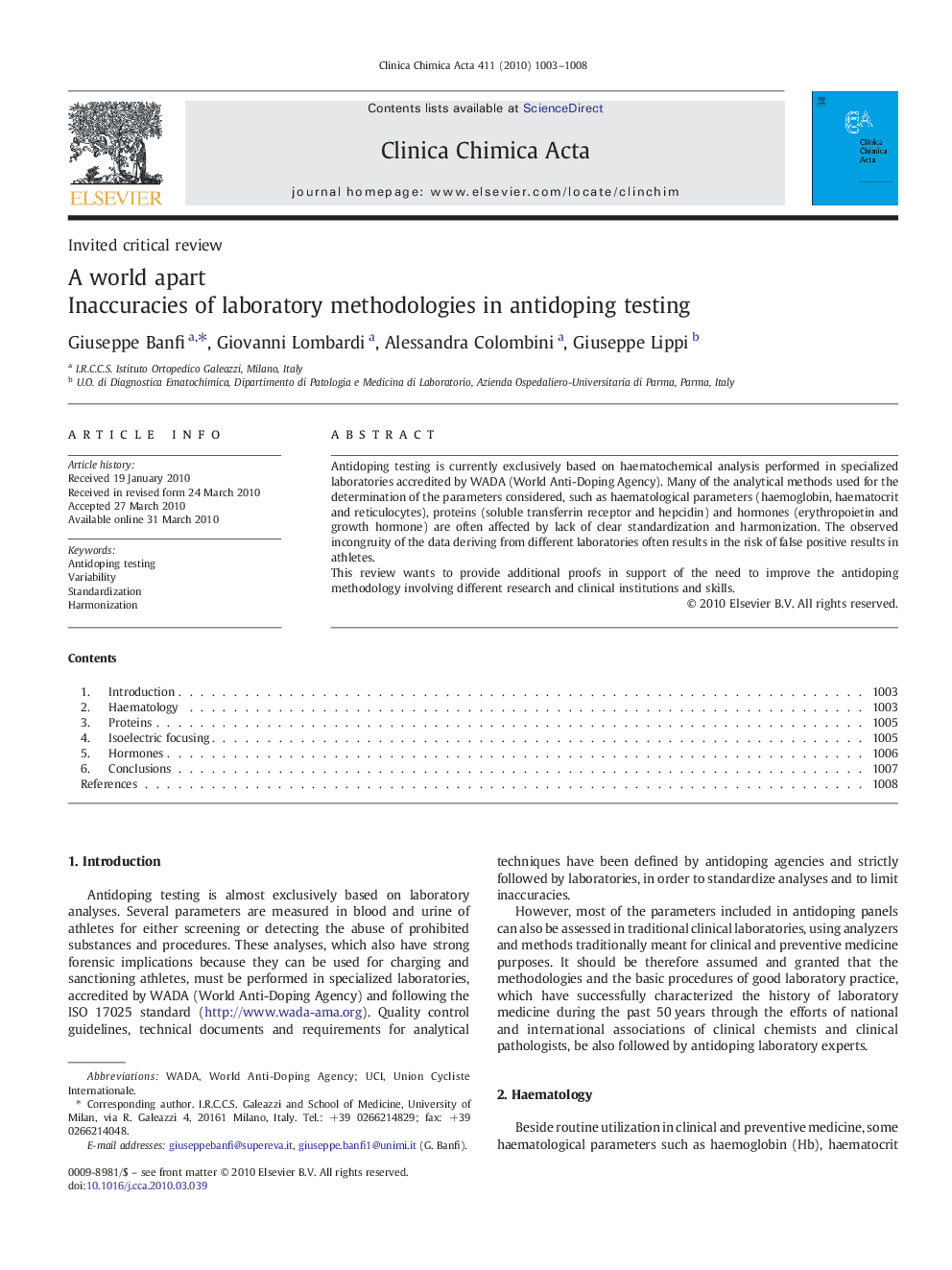| Article ID | Journal | Published Year | Pages | File Type |
|---|---|---|---|---|
| 1965836 | Clinica Chimica Acta | 2010 | 6 Pages |
Antidoping testing is currently exclusively based on haematochemical analysis performed in specialized laboratories accredited by WADA (World Anti-Doping Agency). Many of the analytical methods used for the determination of the parameters considered, such as haematological parameters (haemoglobin, haematocrit and reticulocytes), proteins (soluble transferrin receptor and hepcidin) and hormones (erythropoietin and growth hormone) are often affected by lack of clear standardization and harmonization. The observed incongruity of the data deriving from different laboratories often results in the risk of false positive results in athletes.This review wants to provide additional proofs in support of the need to improve the antidoping methodology involving different research and clinical institutions and skills.
